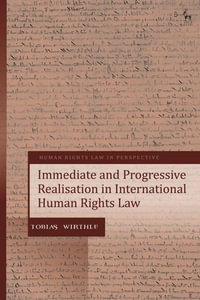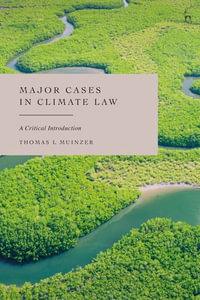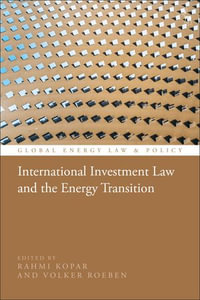
eTEXT
The Legal Barriers to Technology Transfer under the UN Framework Convention on Climate Change
The Example of China
By: Chen Zhou
eText | 11 March 2019
At a Glance
eText
$219.00
or
Instant online reading in your Booktopia eTextbook Library *
Read online on
Desktop
Tablet
Mobile
Not downloadable to your eReader or an app
Why choose an eTextbook?
Instant Access *
Purchase and read your book immediately
Read Aloud
Listen and follow along as Bookshelf reads to you
Study Tools
Built-in study tools like highlights and more
* eTextbooks are not downloadable to your eReader or an app and can be accessed via web browsers only. You must be connected to the internet and have no technical issues with your device or browser that could prevent the eTextbook from operating.
ISBN: 9789811361395
ISBN-10: 9811361398
Published: 11th March 2019
Format: ePUB
Language: English
Publisher: Springer Nature
You Can Find This eBook In
This product is categorised by
- Non-FictionEngineering & TechnologyEnvironmental Science
- Non-FictionLawLaws of Specific JurisdictionsEnvironmentEnvironment Law
- Non-FictionLawInternational LawPublic International LawInternational Environmental Law
- Non-FictionEarth Sciences, Geography, Environment, PlanningThe EnvironmentPollution & Threats to the EnvironmentClimate Change
- Non-FictionEconomicsEnvironmental Economics
- Non-FictionLawJurisprudence & General IssuesComparative Law







![Strategies against Bullying : incl. Bonus - Deal with Cyber-Mobbing, Manipulation & Intriguing Colleagues! Guidlines to Communication & Conflict Resolution [Examples, Templates, Checklists] - Simone Janson](https://www.booktopia.com.au/covers/200/9783965960176/9512/strategies-against-bullying.jpg)















